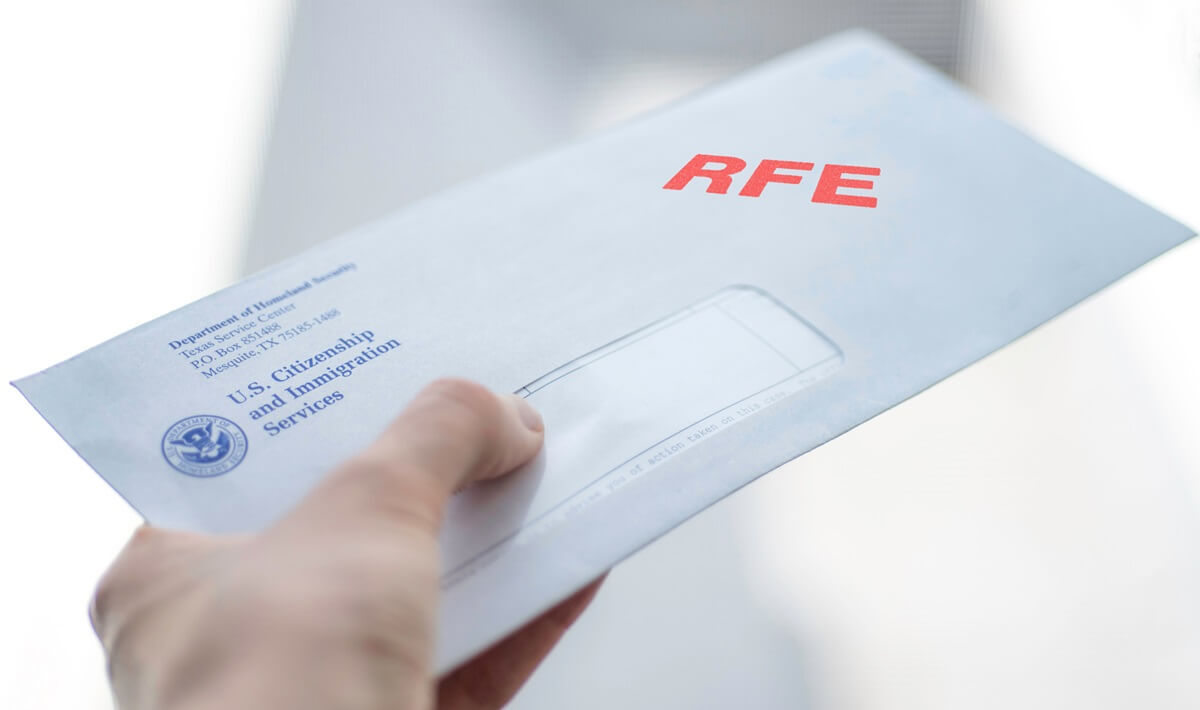
The Affidavit of Support (Form I-864) is a critical part of the U.S. immigration process for family-based and some employment-based green card applicants. This form is a legally binding contract between the petitioner (sponsor) and the U.S. government, ensuring that the immigrant has adequate financial support and will not become a public charge. Since Form I-864 has strict requirements, many sponsors and intending immigrants have questions. We've collected and answered some of your most frequently asked affidavit of support questions to help you navigate the process.
Answers to Your Affidavit of Support Questions
Below are answers to some of the most common affidavit of support questions we get from our customers. Understanding these key details will help you avoid mistakes and ensure a smooth immigration process.
Who Needs to Submit Form I-864?
Answer: Form I-864 is typically required for family-based immigrants and some employment-based immigrants where a relative either filed the petition or owns at least 5 percent of the business sponsoring the applicant. Some common categories that require this form include:
- Family-based immediate relative categories
- Family-based preference categories
- Certain employment-based immigrants when a family member is the primary petitioner
Even if the intending immigrant is wealthy or has a well-paying job in the United States, green card applicants must submit this form to remove the public charge grounds of inadmissibility.
Who Can Be a Sponsor on Form I-864?
Answer: To qualify as a sponsor, an individual generally must:
- Be at least 18 years old;
- Be a U.S. citizen or lawful permanent resident (green card holder);
- Reside in the United States (or show intent to reestablish domicile in the U.S.); and
- Have an income at least 125 percent of the Federal Poverty Guidelines for their household size (or 100 percent for active-duty military members sponsoring a spouse or child).
If the sponsor does not meet the income requirement, they may use a joint sponsor or count certain assets to meet the minimum income threshold. We'll cover income requirements and joint sponsors below.
What Are the Income Requirements for Form I-864?
Answer: The minimum income requirement depends on the household size and is based on the federal poverty guidelines, which are updated annually. The sponsor must provide evidence of income, such as tax returns, W-2s, and recent pay stubs. If the income is insufficient, assets like savings, stocks, or real estate can be used to supplement. But generally, we find it more reliable to use a joint sponsor.
What If the Sponsor Does Not Meet the Income Requirement?
Answer: If a sponsor's income is below the required threshold, they have options:
- Use a Joint Sponsor: A joint sponsor is an additional person who meets the financial requirements and agrees to be equally responsible. A joint sponsor does not need to be related to the petitioner or intending immigrant.
- Count Household Income: The primary sponsor may include income from other household members (such as a spouse or adult child) if they sign and submit Form I-864A.
- Use Assets: The sponsor may include assets to close the gap. Assets can include items such as cash, stocks, or property. The total value of assets must be at least five times the shortfall amount (or three times for spouses or children of U.S. citizens).
How Long Is the Sponsor Financially Responsible?
Answer: The financial responsibility lasts until one of the following occurs:
- The sponsored immigrant becomes a U.S. citizen;
- The immigrant works 40 qualifying quarters (about 10 years) under Social Security;
- The immigrant permanently leaves the U.S.;
- The immigrant dies; or
- The sponsor dies.
Divorce does not end the sponsor’s financial obligation.
Are There Any Exemptions to Filing Form I-864?
Answer: In addition to applicants who are exempt from the public charge rule, there are certain individuals who do not need to submit Form I-864. Exemptions are uncommon but do include:
- Immigrants who have worked at least 40 qualifying quarters in the U.S.; and
- Any intending immigrant who will, upon admission, acquire U.S. citizenship under the Child Citizenship Act of 2000 (CCA).
Which Documents Must Be Submitted with Form I-864?
Answer: Sponsors must provide supporting documents, including:
- Most recent IRS tax transcript (or copies of tax returns with W-2s/1099s)
- Proof of current employment (such as a letter from employer and recent pay stubs)
- Proof of U.S. citizenship or permanent resident status (passport, birth certificate, or green card copy)
- Additional documents if using assets or a joint sponsor
The exact list of supporting documents will vary based on how the sponsor answers affidavit of support questions. CitizenPath can help with specific requirements and additional instructions for individuals with non W-2 income.
Do I Need to Submit Form I-864 If There's a Joint Sponsor?
Answer: Even if a joint sponsor is involved, the petitioning sponsor must still submit a completed Form I-864. The joint sponsor provides additional financial assurance but doesn't replace the primary sponsor's commitment. Each person, the petitioning sponsor and the joint sponsor, will submit a separate Form I-864.
What Happens If Form I-864 Is Incomplete or Incorrect?
Answer: Errors or missing information on Form I-864 can cause delays or denials. If USCIS is unable to make a decision based on the documentation you provide, they may issue a Request for Evidence (RFE), which can delay the green card process. Double-check all details before submission.
Why Most Green Card RFEs Are Related to Form I-864
Form I-864 is one of the most common sources of Requests for Evidence (RFEs) in green card applications. Many RFEs occur due to missing information, incorrect income calculations, or lack of supporting documents. USCIS frequently issues RFEs for errors such as:
- Incomplete or unsigned forms
- Insufficient proof of income or incorrect financial calculations
- Missing tax documents or proof of employment
- Failing to calculate household size correctly
To avoid RFEs, sponsors must carefully review the form, double-check income calculations, and provide all necessary documentation upfront.
By understanding these common affidavit of support questions, you can confidently navigate the sponsorship process and help your family member secure their green card. If you need help completing Form I-864, CitizenPath is here to guide you!
How CitizenPath Resolves Your Affidavit of Support Questions
CitizenPath offers a user-friendly, step-by-step service to help sponsors complete Form I-864 accurately. Our system identifies common mistakes before submission, ensuring your form meets USCIS requirements. With our personalized filing instructions, you’ll know exactly which documents to include, reducing the risk of RFEs and delays.
CitizenPath provides simple, affordable, step-by-step guidance through USCIS immigration applications. Individuals, attorneys and non-profits use the service on desktop or mobile device to prepare immigration forms accurately, avoiding costly delays. CitizenPath allows users to try the service for free and provides a 100% money-back guarantee that USCIS will approve the application or petition. We provide support for the Affidavit of Support Package (Form I-864) and several other immigration services.
Want more immigration tips and how-to information for your family?
Sign up for CitizenPath’s FREE immigration newsletter and
SAVE 10%
on our immigration services






